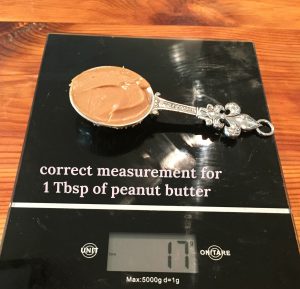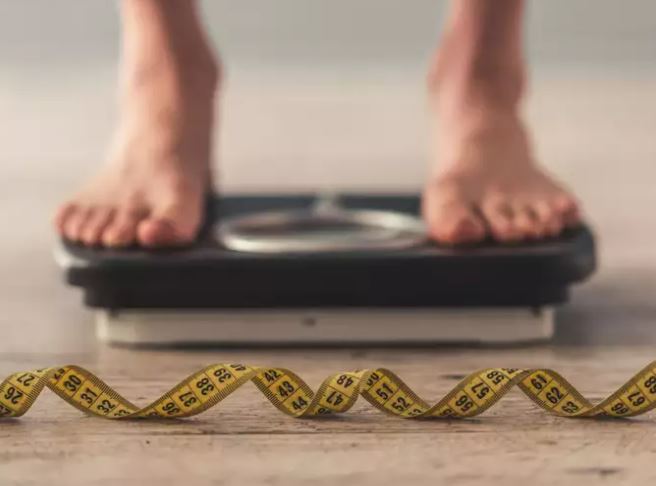Can’t Lean Out? Here’s Why

So You Want to Shred Some Fat – But Can’t
So, you’re trying to shred some fat but are having a hard time. Maybe you’re just starting out and haven’t tried to lose weight before, or maybe you’ve hit a plateau with your weight loss. Losing weight is hard. So many things can set you back without even realizing it. What is important is to acknowledge these factors which are prohibiting you from getting lean.
You’re Not Moving Enough
Here’s the thing. No two people burn the same amount of energy, or calories each day. The amount of calories your body uses while at rest (think zero movement, sleeping 24/7) is called your BMR, Basal Metabolic Rate. This BMR changes person to person based on body height, weight, and lean body mass.
However, two people who have identical diets and calorie intake can have two very different body compositions based on how much they move. No, I don’t just mean exercising or hitting the gym. I’m talking NEAT. NEAT stands for Non-Exercise Activity Thermogenesis. This is not counting the calories you burn in your workouts. This is the accumulation of all the little calories you burn here and there by doing normal, non-exercise things. Think of it like this, who do you think burns more calories: the person playing with their dog or chasing kids around the house, or the person watching Netflix all day and only getting up for a snack refill and a restroom break?

Doing small things here and there add up. The easiest metric that some use to get a gist of their NEAT is counting their daily steps. Usually that number is an arbitrary 10K steps per day (thanks, Fitbit). But realistically if you just spend more time moving and on your feet your NEAT will increase, therefore you’ll be burning more calories without killing yourself in the gym (Cardio? No thanks).
Don’t be fooled though, your workouts still count towards your TDEE (Total Daily Energy Expenditure) and the calories you burn from them are real. Just don’t eat back the calories you burn from your workouts.
Thinking Healthy Foods Are Low Calorie
For some reason, we have categorized foods into sections like healthy/unhealthy or good/bad. But what makes a food “healthy”? Is it low in calories? Is it minimally processed? Is it vegan? Is it low-carb? Well it just depends on how you look at things. But lets start here: take a granola bar for instance. For some reason, granola has been marketed to us as some type of superfood. A typical granola bar (the full package, not a measly half bar “serving”) has about 200 calories. And how full does it make you feel? And how many times a day will you reach for them (or another snack). When your calorie budget for maintenance (i.e., not losing weight) is only 2000 kCal, is it really worth it?
Things get worse when you play into the diet food hype. Just because something is “keto”, does not mean it will be lower calorie. It will probably be low-carb but high-fat. And fat holds 9 calories per gram, while carbs only hold 4 calories per gram. Therefore, it’s really easy to be equal in calories, if not more.
Don’t even get me started on gluten-free foods (unless you are celiac or have an allergy). For some reason people think gluten-free = diet = low calorie. Well, gluten-free foods tend to have about the same amount of calories as their glutened counterparts.
Essentially, just because something is viewed as healthy, does not mean its low-calorie.
Consuming Too Many Calories – Need to Read Labels And Track Intake
Another mistake often made is not tracking your food. Every bite of food you eat has calories, and they count. If you’re snacking on something “low calorie” here and there, those calories add up easily. Some people don’t think they need to track their vegetables – those veggie calories add up, in some cases I have seen people “not counting” the calories in their vegetables, but it turned out those added up to be over 600 extra calories a day.
 There are many ways to track your food. Nowadays, most people use an app like MyFitnessPal or MM+. With these apps, you must keep in mind that you must make your own entries for foods when getting started. A lot of the entries in there are input by other users, and are often wrong.
There are many ways to track your food. Nowadays, most people use an app like MyFitnessPal or MM+. With these apps, you must keep in mind that you must make your own entries for foods when getting started. A lot of the entries in there are input by other users, and are often wrong.
Another thing to consider when tracking food is the difference between an estimate (1 medium apple) or 100 grams of apple. 1 medium apple can be up to 200 grams, but you may only be accounting for half of the calories. This is why it’s important to track foods in grams and mL. Counting in grams is much more accurate than estimates, or even measuring cups.
If you want to be serious about losing weight, tracking your food might just be the most important factor within this list. You should look at the labels of all food you eat, and if it doesn’t have a label, search the food on the USDA website.
When tracking food, you can either track total calories, and not worry about how many grams of protein/carbs/fats you have; or you can track the macronutrient grams and have them make up your calories. If you want to maintain or build muscle, it’s important to track how much protein you are getting. Too little protein and you will experience muscle wasting. Too much protein, well, at a certain point your body stops utilizing it, so you might be better using some of those calories towards carbs or fats (i.e., nobody needs 400 grams of protein).
If you have confusion on how many calories a day you should consume, there are plenty of websites that have a calculator to use to find that magic number. Some of these websites will even tell you the breakdown of grams of protein/fat/carbs you should be eating as well.
Trusting The Scale Too Much
So utilizing the scale is probably the easiest metric there is to tracking your weight. But that’s all it does—track weight. The scale does not accurately track body fat %, so don’t rely on that (though sometimes its interesting to see a trend in that). Another thing, your weight can fluctuate daily even if you’ve been eating in your desired calorie range and have been more active.
So many different factors can affect the scale day-to-day. Some people track the scale once a week, some do it daily, some monthly (and some not at all). The benefit of logging daily is that you can view a more detailed trend as well as get a more accurate average weekly weight loss. However, if you decide to weigh yourself daily, do not get discouraged from a few days of maintaining or gaining weight. However, if you weigh daily and you’ve been increasing in weight for a week or more, there is probably something wrong with what you’re doing.
 A better metric for tracking your weight loss is counting inches, not pounds. Get a measuring tape and measure key areas of your body on a regular basis. Perhaps you’ve maintained the same weight on the scale for 2 weeks. But if you compare measurements, you might be surprised how many inches you’ve lost.
A better metric for tracking your weight loss is counting inches, not pounds. Get a measuring tape and measure key areas of your body on a regular basis. Perhaps you’ve maintained the same weight on the scale for 2 weeks. But if you compare measurements, you might be surprised how many inches you’ve lost.
You’re Lacking Consistency
Something that you don’t want to hear is that you just simply have not been consistent. Maybe you hit the gym hard for a week, but then skip the entire next week. Maybe your diet is on point Sunday through Thursday, but as soon as Friday hits, tracking food goes out the window. These calories you might be consuming on the weekend can set you back days! If you want to be able to enjoy a hearty meal on the weekend, eat lighter throughout the week to offset the calorie difference and maintain an average amount of desired calories.
There are many ways that inconsistency can negatively affect your goals. If you’re looking to get something positive, but only put in effort 75% of the week, things are not going to go in your favor. Set clear goals, with a plan on how to achieve those goals. If eating and drinking on the weekend is your vice, then you must make a plan to either adapt the rest of the week for the weekend or make a choice to commit to consistency on the weekend as well.

Overall, there are many things that can hold you back from losing body fat, but luckily most of them are in your control. You have the power to get moving, track your food, and stay within your desired calorie range. If you think you are doing this all right, and still not seeing results, then it’s time to ask for help. Whether it be getting your hormone levels checked by a doctor, seeing a nutritionist, or even hiring a qualified coach specializing in nutrition, there are many avenues for you to get help with your goals.
- Login to post comments


